| Foto | First Name | Last Name | Position |
|---|---|---|---|
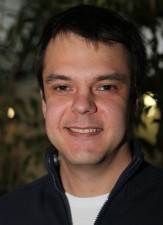 |
Mykhaylo | Andriluka | People Detection and Tracking |
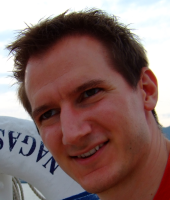 |
Roland | Angst | Vision, Geometry, and Computational Perception |
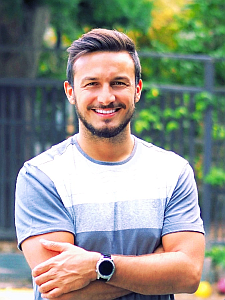 |
Tamay | Aykut | |
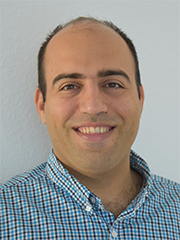 |
Vahid | Babaei | |
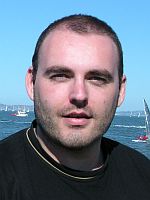 |
Pierpaolo | Baccichet | Distributed Media Systems |
 |
Volker | Blanz | Learning-Based Modeling of Objects |
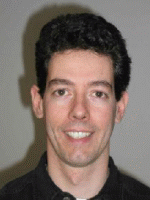 |
Volker | Blanz | Learning-Based Modeling of Objects |
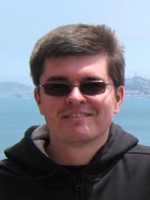 |
Martin | Bokeloh | Inverse Procedural Modeling |
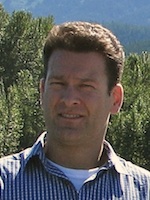 |
Adrian | Butscher | Geometry Processing and Discrete Differential Geometry |
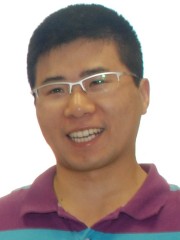 |
Renjie | Chen | Images and Geometry |
Researcher
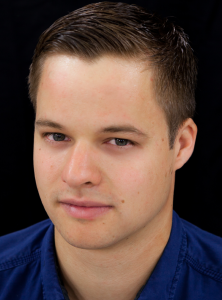 |
Dr. Michael Zollhöfer |
Visual Computing, Deep Learning and Optimization
| Name of Research Group: | Visual Computing, Deep Learning and Optimization |
| Homepage Research Group: | web.stanford.edu/~zollhoef |
| Personal Homepage: | zollhoefer.com |
| Mentor Saarbrücken: | Hans-Peter Seidel |
| Mentor Stanford: | Pat Hanrahan |
| Research Mission: | The primary focus of my research is to teach computers to reconstruct and analyze our world at frame rate based on visual input. The extracted knowledge is the foundation for a broad range of applications not only in visual effects, computer animation, autonomous driving and man-machine interaction, but is also essential in other related fields such as medicine and biomechanics. Especially, with the increasing popularity of virtual, augmented and mixed reality, there comes a rising demand for real-time low latency solutions to the underlying core problems. My research tackles these challenges based on novel mathematical models and algorithms that enable computers to first reconstruct and subsequently analyze our world. The main focus is on fast and robust algorithms that approach the underlying reconstruction and machine learning problems for static as well as dynamic scenes. To this end, I develop key technology to invert the image formation models of computer graphics based on data-parallel optimization and state-of-the-art deep learning techniques. The extraction of 3D and 4D information from visual data is highly challenging and under-constraint, since image formation convolves multiple physical dimensions into flat color measurements. 3D and 4D reconstruction at real-time rates poses additional challenges, since it involves the solution of unique challenges at the intersection of multiple important research fields, namely computer graphics, computer vision, machine learning, optimization, and high-performance computing. However, a solution to these problems provides strong cues for the extraction of higher-order semantic knowledge. It is incredibly important to solve the underlying core problems, since this will have high impact in multiple important research fields and provide key technological insights that have the potential to transform the visual computing industry. In summer 2019 Michael Zollhöfer joined Facebook. |
Researcher
- Name of Researcher
- Peter Vajda
- Homepage of Research Group
- First Name
- Peter
- Last Name
- Vajda
- Foto
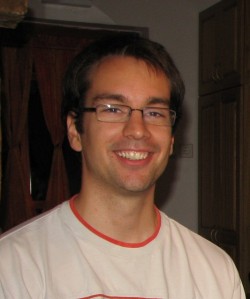
- Phone
- Position
- Personalized TeleVision News
- Mentor in Saarbruecken
- Hans-Peter Seidel
- Mentor in Stanford
- Bernd Girod
- Categories
- Former Groups
- Research Mission
- We seek to develop and demonstrate a platform for personalized television news to replace the traditional one-broadcast-fits-all model. We forecast that next-generation video news consumption will be more personalized, device agnostic, and pooled from many different information sources. The technology for our research represents a major step in this direction, providing each viewer with a personalized newscast with stories that matter most to them. We believe that such a model can provide a vastly superior user experience and provide fine-grained analytics to content providers. While personalized viewing is increasingly popular for text-based news, personalized real-time video news streams are a critically missing technology. To achieve this Personalized Television News system, our team leverages our extensive research experience in story segmentation, visual concept detection, topic linking, news videos augmentation, and mobile visual search. Our team possesses a solid record of building functional prototypes that demonstrate our research visions. In 2014 Péter Vajda joined Facebook Inc., Menlo Park, as a research scientist.
- mission_rtf
- Name of Research Group
- Personalized TeleVision News
Personal Info
- Photo

- Website, Blog or Social Media Link



